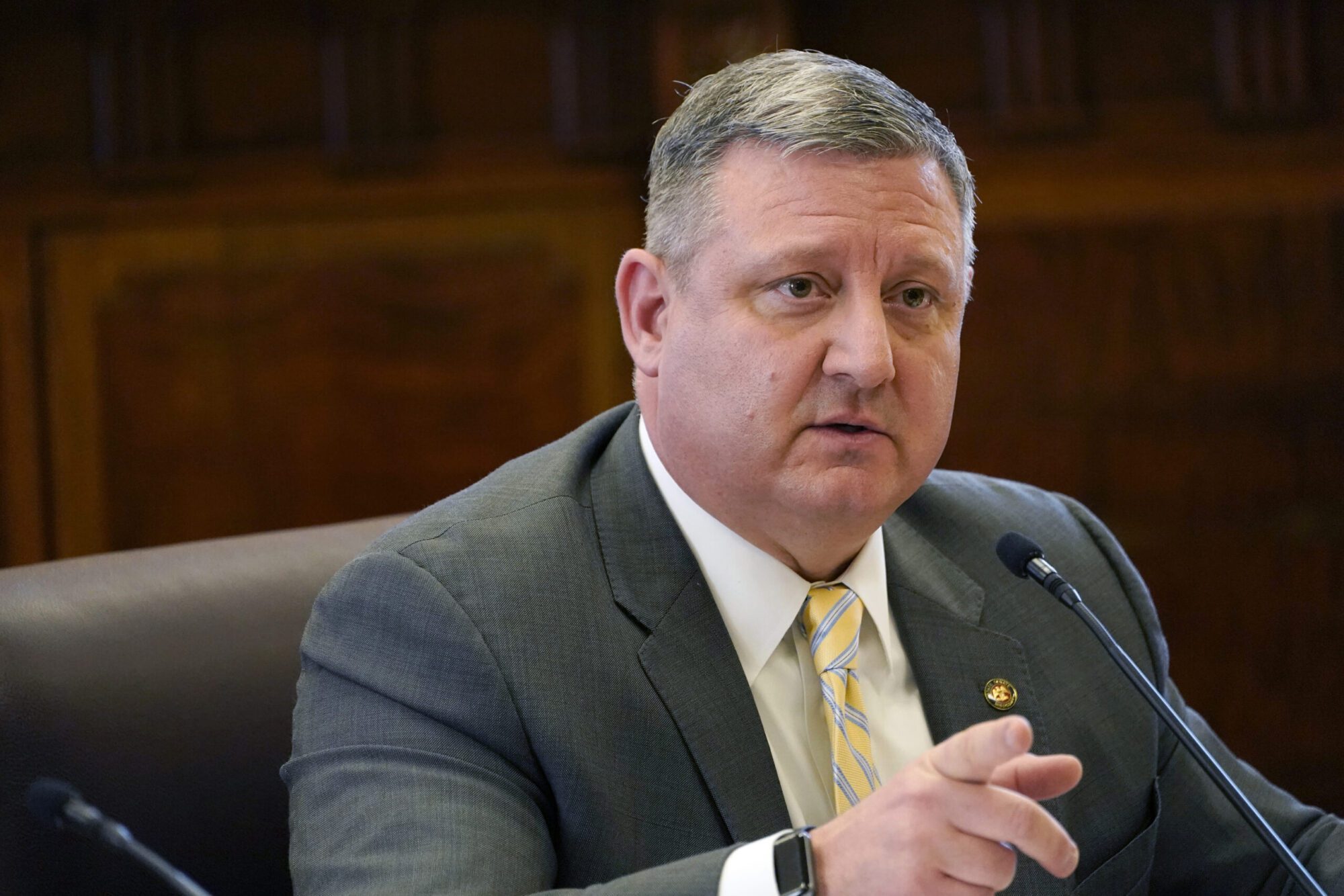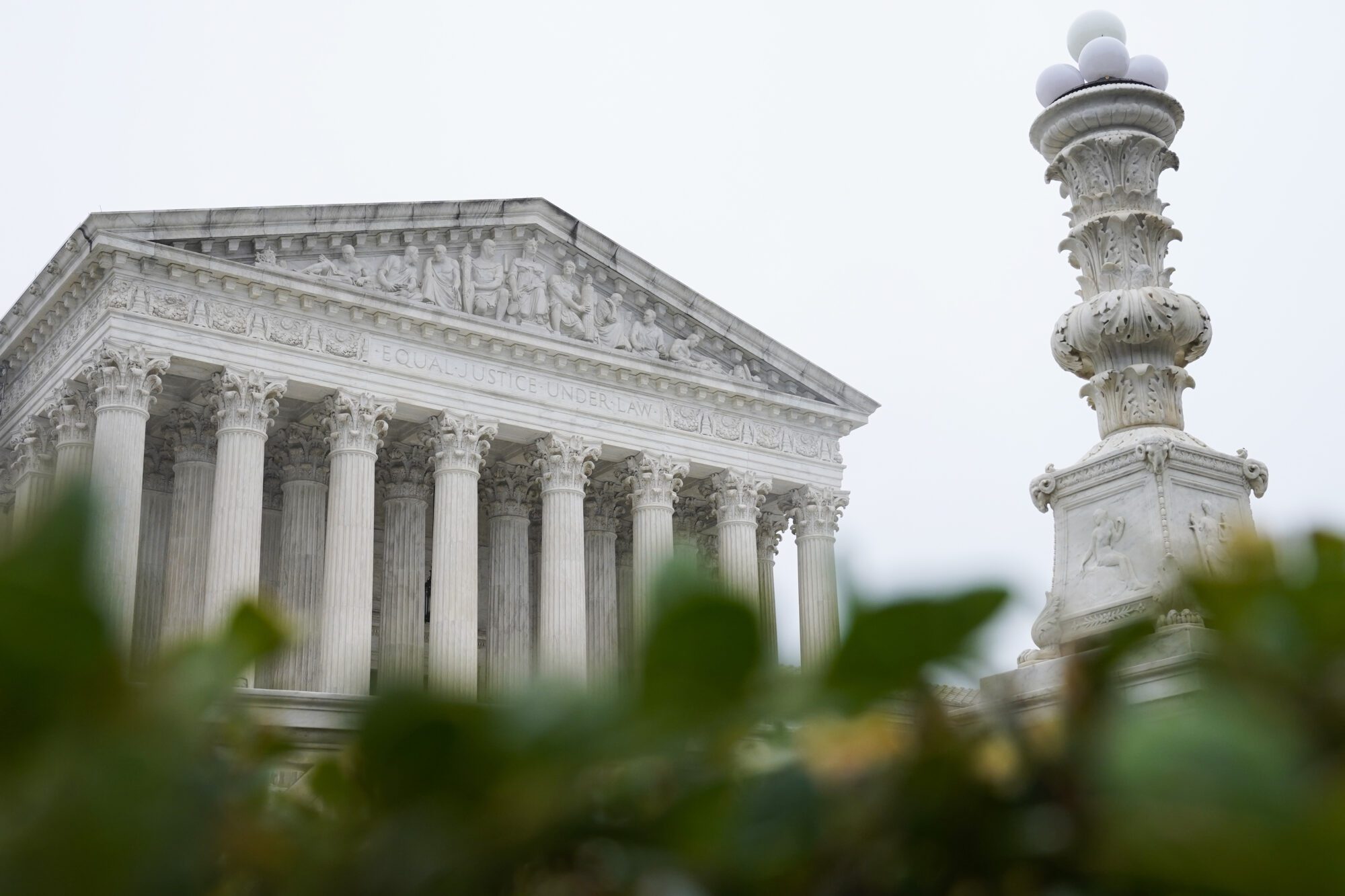
- Lawmakers are considering the Women’s Bill of Rights that would codify gender specific terms in state law, defining “woman” and “man” by their biological sex.
Paula Scanlan, a former University of Pennsylvania swimmer, was in Jackson last week to encourage lawmakers to consider a bill that would codify what the word “woman” means in state law.
The bill, HB 1607, seeks to define biological sex of men and women for the purpose of adding clarification when interpreting state law. The bill defines the terms “man,” “woman,” “girl,” and “boy” based on reproductive organs.
RELATED: Mississippi Women’s Bill of Rights passes in House defining biological sexes
Scanlan said the words “woman” and “female” are used more than 200 times in Mississippi state law, making it imperative in today’s culture to define what those words mean.
“It is so important to have those words defined because if they’re not defined than anyone can come in and interpret those words to mean whatever they want,” said Scanlon. “Words have meaning. If we can’t define these sex-based terms we can’t fight against sex discrimination.”
Scanlan, a two-time NEPSAC Champion who holds the NEPSAC 400 Free Relay record, went on to swim at the University of Pennsylvania. During her time at Penn, Scanlan was teammates with Lia Thomas, who biological male who identifies as a transgender female.
Scanlan referred to Thomas by his biological pronouns in reference to their time as teammates.
“He was changing in locker rooms with us and taking spots away from girls. Every time they traveled to an away game a girl was denied the opportunity to compete. Additionally, every time he placed, a girl was bumped out of their spot,” said Scanlan.
She said other teammates were discouraged when they knew Thomas would hold a particular advantage because of his biology. For many, Scanlan said they knew the competition was over before it began. These disadvantages took an emotional toll on the athletes.
Scanlan said what she found the most concerning was a lack of protections for women, as many biologically female players thought Title IX would protect them. However, interpretations of the word “woman” would come up short for those athletes.
“It was incredibly discouraging for me and my teammates. People have worked so hard to qualify for these meets and be taken on these rosters and we were denied that opportunity,” said Scanlan.
Scanlan added that she and her teammates were not allowed to speak up about being uncomfortable with Thomas, making the need for defining legislation even more important for women, particularly those in sports.
While Mississippi does have statutes on the books that prevent biological males from competing in female sports for K-12 and higher education athletics, Scanlan said she does believe without additional protections it will discourage young female athletes from pursuing sports.
In 2023, a high school volleyball player, Payton McNabb, was injured when a transgender player on an opposing team spiked the ball in her face. McNabb suffered severe head and neck trauma, resulting in a long-term concussion.
“Payton’s story makes it even more important for us to protect young girls and women from abuse, from being discouraged from competing,” said Scanlan.
Scanlan said it is not her goal to see individuals barred from participating in sports, but that sex-based categories must be protected.
“Nobody should be banned from sports. We just need to have sex-based categories and to have sex-based categories we need to be able to define what those categories are,” said Scanlan.
The Women’s Bill of Rights template has been utilized in multiple states where such legislation was enacted. Lawmakers supporting the bill are largely considering the bills preventative, to ensure women are protected in the sports they play.
Scanlan said if states are not able to define what a woman is, they cannot fight sex discrimination or uphold the integrity of Title IX. She said support for these protections come from women in all walks of life.
Currently, there is a lawsuit against the NCAA for its interpretation of Title IX which involves multiple female athletes.
HB 1607, authored by State Rep. Dana McLean, passed the Mississippi House by a vote of 82-30, mostly split down party lines with Republicans backing the bill and Democrats opposing it. The legislation now awaits action in the Senate where it was referred to Senate Judiciary A Committee, chaired by State Senator Brice Wiggins (R).










